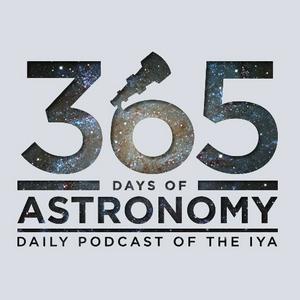From September 3, 2025. In this week's episode, we take a look at the impact SpaceX launches from the Space Coast will have on their competitors and those living, working, and going to school near Kennedy and Cape Canaveral. We also look at a bunch of new science discoveries, including the origins of Ryugu & Bennu, the solar system shocked itself, a new supernova that blew off an unusual number of layers before exploding, and quick updates on Psyche, Juno, JUICE, and the number of moons orbiting Uranus. We've added a new way to donate to 365 Days of Astronomy to support editing, hosting, and production costs. Just visit: https://www.patreon.com/365DaysOfAstronomy and donate as much as you can! Share the podcast with your friends and send the Patreon link to them too! Every bit helps! Thank you! ------------------------------------ Do go visit http://www.redbubble.com/people/CosmoQuestX/shop for cool Astronomy Cast and CosmoQuest t-shirts, coffee mugs and other awesomeness! http://cosmoquest.org/Donate This show is made possible through your donations. Thank you! (Haven't donated? It's not too late! Just click!) ------------------------------------ The 365 Days of Astronomy Podcast is produced by the Planetary Science Institute. http://www.psi.edu Visit us on the web at 365DaysOfAstronomy.org or email us at
[email protected].


